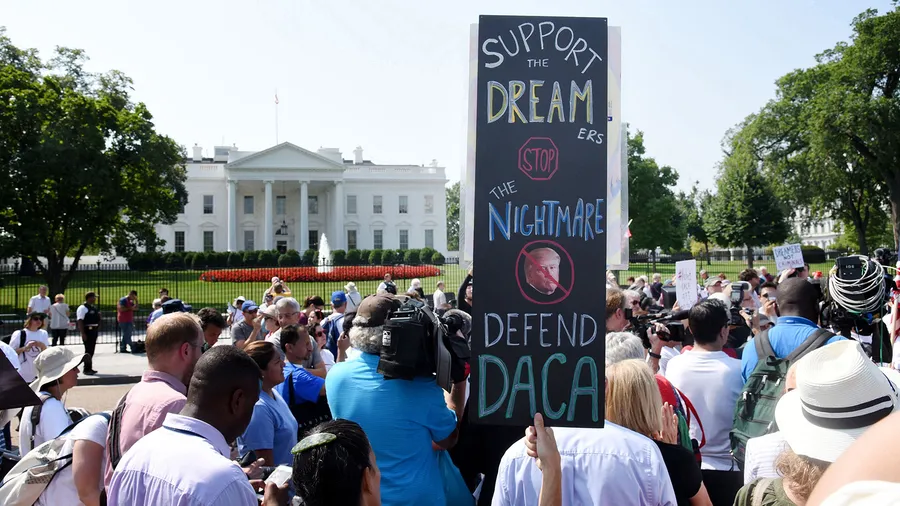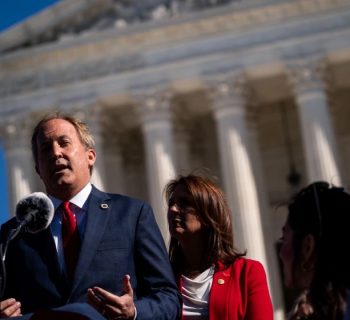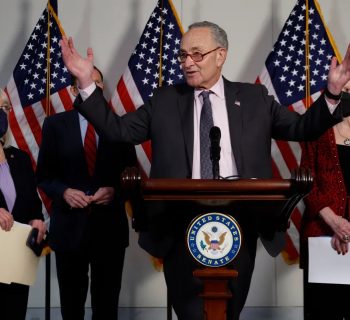By Whitney Downard | The Lebanon Reporter | NOV. 3, 2022 |
After 20 years of living in the United States, Pamela Chomba and her sister – both DACA recipients – decided it was time to buy a house where they lived in Washington, D.C. But that same year, 2021, a lower court judge in Texas made a decision that threatened to upend their whole lives when they ruled that the Obama administration had illegally implemented the program.
“Even the euphoria of having something that you can touch, that you can say, ‘This is my home,’ is put into question,” Chomba said. “What kind of economic certainty and security do I have to continue living in my home, to continue feeling economically independent?”
The Deferred Action for Childhood Arrivals (DACA) program granted undocumented immigrants work permits and protection from deportation for those who emigrated to the country as children.
Earlier this month, Dreamers, or DACA recipients, received a temporary reprieve when a three-judge panel on the 5th U.S. Circuit Court of Appeals agreed that DACA had been implemented illegally but the program should remain in place.
DACA in Indiana
Current recipients can continue to renew their protective status but the ruling bars the addition of first-time applicants. More than 800,000 people use the program, including 8,870 Hoosiers.
The American Immigration Council reports that Indiana DACA recipients and DACA-eligible individuals alone paid an estimated $21.4 million in state and local taxes in 2018.
Like Chomba, the protected DACA status allows Dreamers to pursue higher education or get a job. Combined, Indiana’s DACA recipients have an estimated spending power of $180.8 million and contribute $516.4 million to the state’s GDP.
Greg Zoeller was the Republican Attorney General of Indiana when DACA was enacted and now advocates for immigration reform as a member of the board of directors at the National Immigration Forum.
As the chairman of the World Trade Center in Indianapolis, Zoeller said he focuses on the economics of immigration, many of whom are integrated into various community aspects, including health care, education or starting their own businesses.
“In Indiana, there’s not enough of a workforce to maintain our current economy, much less grow. So the opportunities of economic growth are being stifled by a lack of workforce generally,” Zoeller said.
“But traditionally, we’ve always had a workforce that’s based somewhat on immigrants. If you don’t have immigrants coming in, you don’t have a growing workforce; you don’t have a growing economy.”
On Oct. 20, more than 80 business leaders sent a letter to Congress urging them to take action for Dreamers, warning that its expiration would exacerbate the nation’s worker shortage.
“Given that DACA applications and renewals were granted on a rolling basis, the end to this program means that an estimated 22,000 jobs would be lost every month for two years. That is roughly 1,000 job losses per business day at a time when the U.S. economy already faces significant workforce shortages,” the letter, signed by Indiana companies Eli Lilly and Salesforce, said.
“We urge you to swiftly pass legislation this year that will help Dreamers, American businesses, and our country,” the letter concluded.
With DACA on “life support,” Chomba and others have an uncertain future.
“There’s nothing certain to it because it’s in a legal limbo where it could just be pulled (away) or some higher power could just come and let me fall,” Chomba said.
Under the program, Chomba and her sister could both continue living and working in the country and another sibling, born later, would be a U.S. citizen.
Chomba’s family arrived in the United States 20 years ago when she was 11. Ever since meeting a cousin studying in the country six years before, she knew she wanted to pursue an education here too.
Becoming a DACA recipient shortly after the program launched in 2012 changed her life. Now Chomba does political work with FWD.us as the director of State Immigration Campaigns. The organization pushes Congress to craft more permanent immigration reform, contending that DACA was always meant to be a temporary measure.
Chomba said an estimated 200,000 DACA recipients were frontline workers during the pandemic, whether healthcare providers or in another essential role. Each recipient has a workplace, family and community that would suffer should DACA be rescinded with no replacement, Chomba said.







